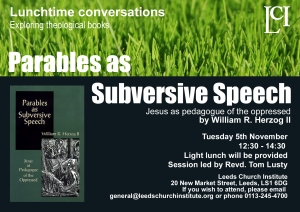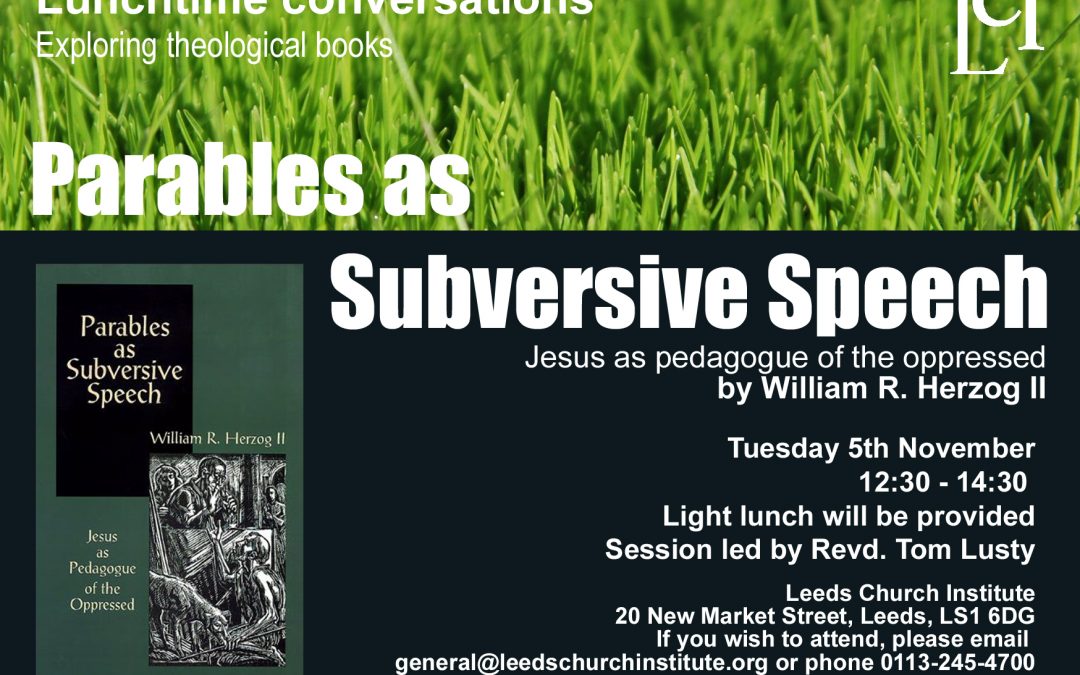 A dozen people came to LCI to explore the themes of this book in November. Revd Tom Lusty led the session. He said that he picked this book ‘Because it challenged me to reflect on certain of Jesus’ parables very differently.’ The main thing he wanted to communicate through the session was, ‘That the way we read the parables can make a big difference to the way in which we view Jesus’ attitudes toward the injustices of oppression and collusion.’
A dozen people came to LCI to explore the themes of this book in November. Revd Tom Lusty led the session. He said that he picked this book ‘Because it challenged me to reflect on certain of Jesus’ parables very differently.’ The main thing he wanted to communicate through the session was, ‘That the way we read the parables can make a big difference to the way in which we view Jesus’ attitudes toward the injustices of oppression and collusion.’
How did the Lunchtime Conversation bring new insights?
This way of reading the parables can be effective in both naming injustice and addressing collusion in oppressive, systematic practices. It highlighted that we need to tell the parables with those who are suffering injustice rather than about them.
We need to reflect on where we see ourselves in the parables when we tell them. If it is as retainer or steward, that indicates that we share in the oppressor’s perspective and do not stand apart from it. To not identify in this way is a powerful stance in many contexts, and we talked about this in relation to both our contexts and to Sri Lanka.
People who attended shared that the session was particularly helpful in helping them to heighten awareness of our lenses on life, through developing understanding of the impact of class and economic status.

